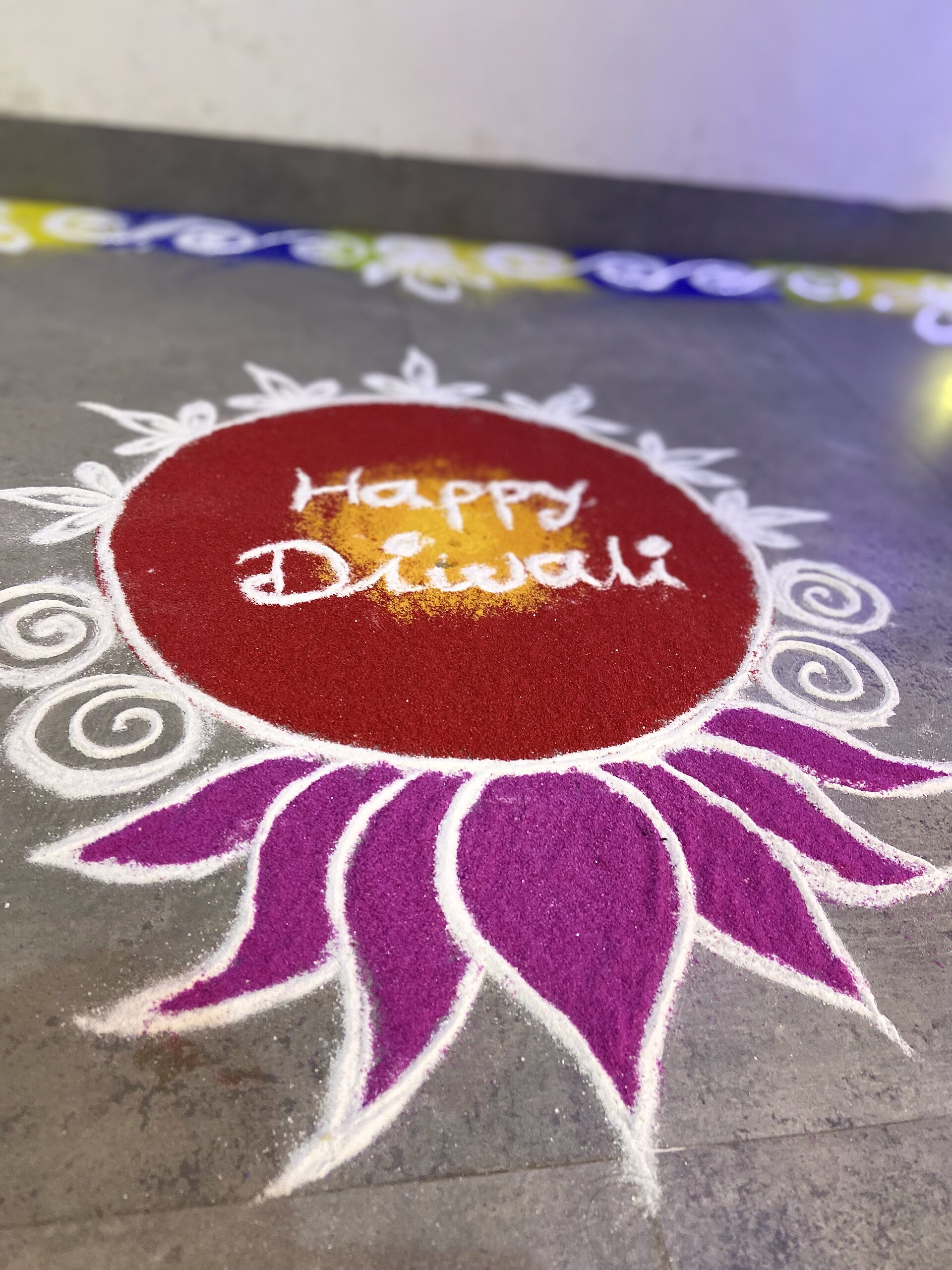Freudenberg wishes all of its employees in India and around the world a happy Diwali – the festival of lights. Here, four of them tell us how they celebrate and what the festival means to them.
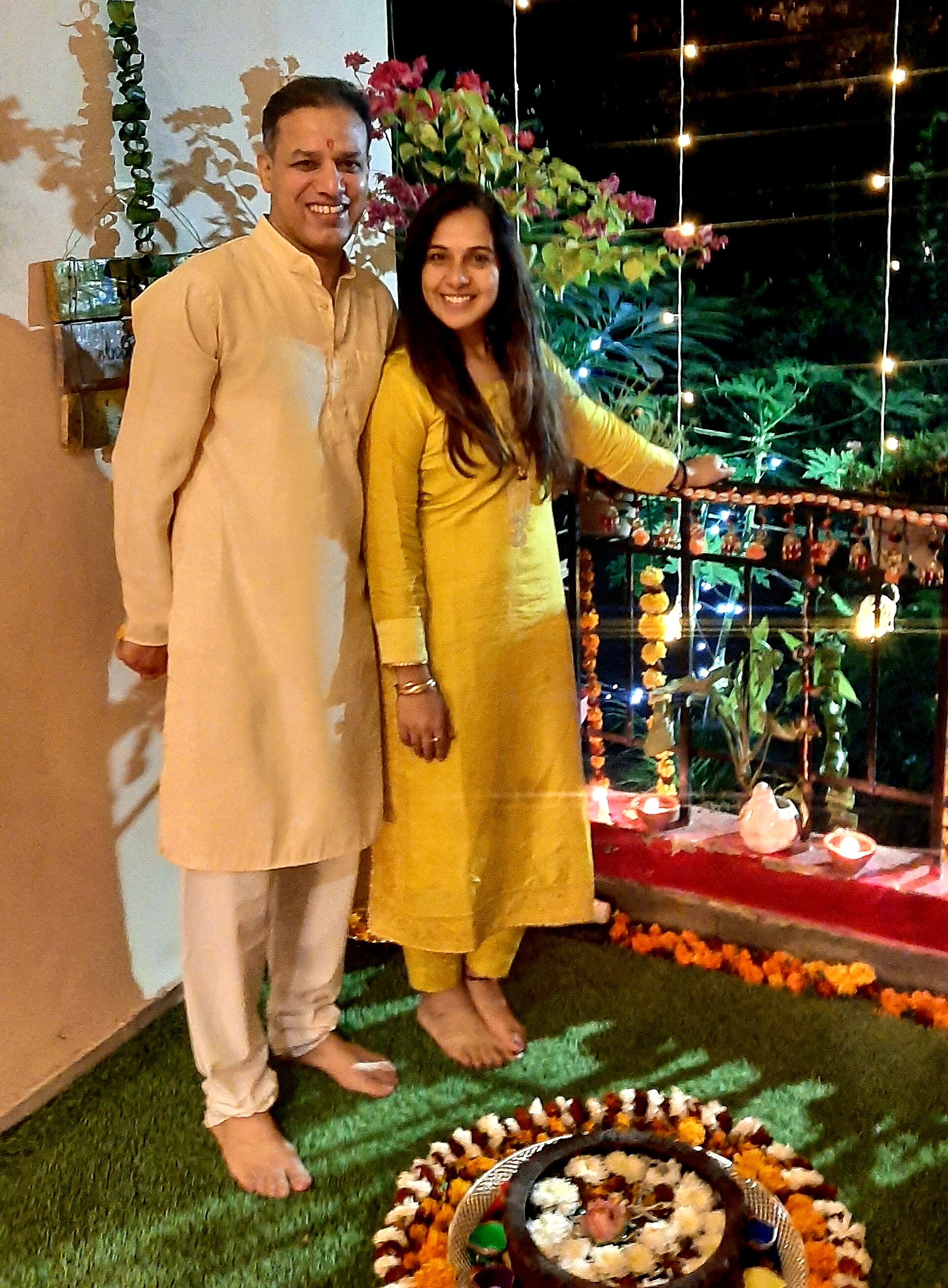
Make rangoli with the children and light up the house with diyas and candles and wearing new ethic clothes are my favourites during this festive season.
Nidhi Khanna, Assistant General Manager, Sales & Marketing, Aftermarket, Freudenberg-NOK
Nidhi Khanna talks about her family traditions: "Diwali is the greatest festival for me and my family. I love this time of year when the entire city is lit up with lights, diyas and candles. We are creative, decorate the house together with our children and make donations to charity. We usually start the festivities early with friends. Delicious food, sweets, dried fruit, flowers, candles and fairy lights are the main things. We also meet with the family for lunch and to pray together. Make rangoli with the children and light up the house with diyas and candles and wearing new ethic clothes are my favourites during this festive season."
One of the best things about Diwali to me is that the whole family comes together to celebrate with delicious food and fireworks.
Hithesh Kesarla, Professional Process Engineering, Freudenberg Sealing Technologies
“One of the best things about Diwali to me is that the whole family comes together to celebrate with delicious food and fireworks. During a three-year stay in Italy, my wife and I were not able to travel to India for the festival. I was all the happier that we could celebrate the festival back in our home country for the first time last year. Even more so because it was the first Diwali for my son, who was nine months old at that time. An unforgettable experience,” says Hithesh Kesarla on his experiences.
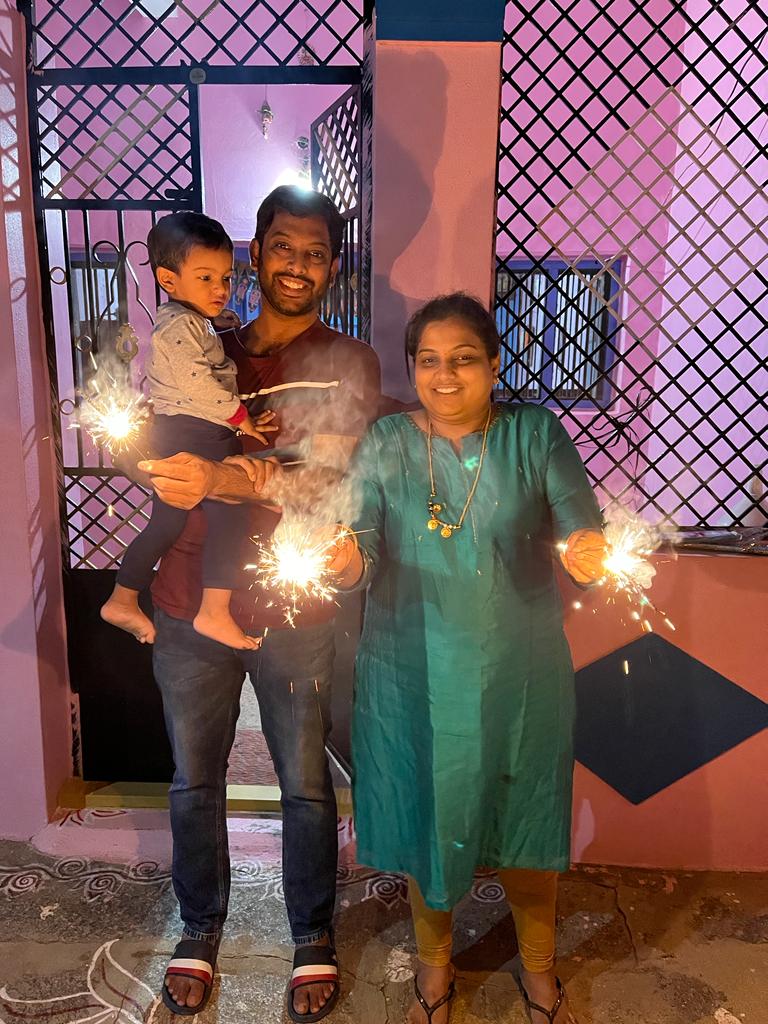
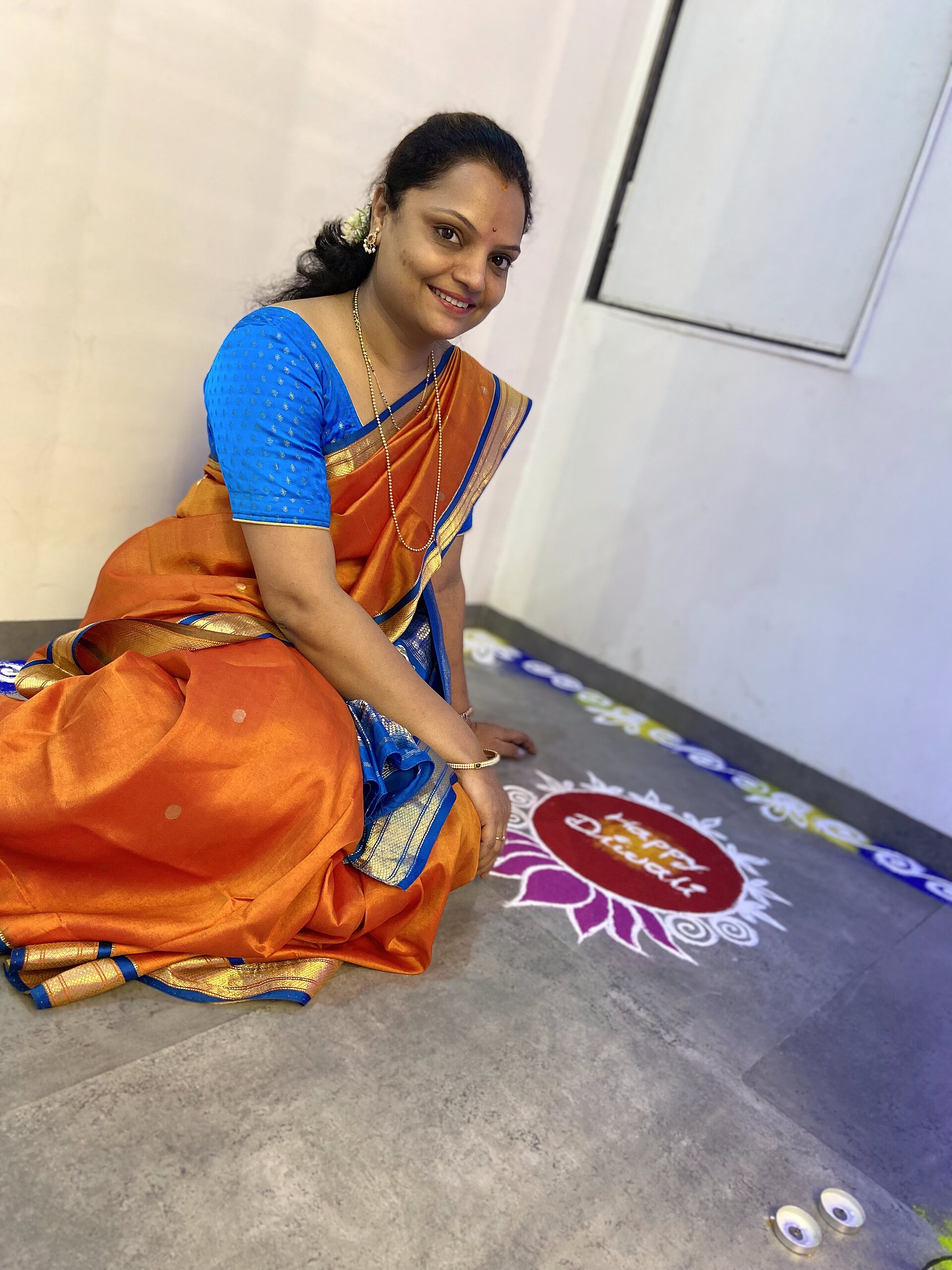
We decorate our houses with oil lamps called diyas and colorful patterns made of colored sand or powder called rangoli.
Reshma Kadam, HSE Officer, Freudenberg Home and Cleaning Solutions
"Dhanteras, the first day of Diwali, marks the beginning of the celebrations. The tradition is to clean the house at night and send a prayer to the goddess Lakshmi," Reshma Kadam sharing her experience, "on the second day, we decorate our houses with oil lamps called diyas and colorful patterns made of colored sand or powder called rangoli. The third day is the high point of the celebration, when we congregate at home to pray and enjoy a festive feast. The fourth day is the Hindu New Year’s Day, when we visit friends and family. On the fifth and final day, siblings invite each other to a meal of their favorite dishes. This honors the lifelong bond between brothers and sisters."
My family gets together for lunch or dinner to enjoy special dishes – including the sweet dish known as payasam.
Sudha Nair, Assistant Manager Business Support, Klüber Lubrication India
"I like it that our whole house is lit up with little lights and oil lamps. My family gets together for lunch or dinner to enjoy special dishes – including the sweet dish known as payasam, said to be the favorite dish of the goddess Lakshmi. My family commemorates her as the goddess of wealth, both inner and outer, and as the consort of Vishnu. Diwali is their wedding anniversary," says Sudha Nair.
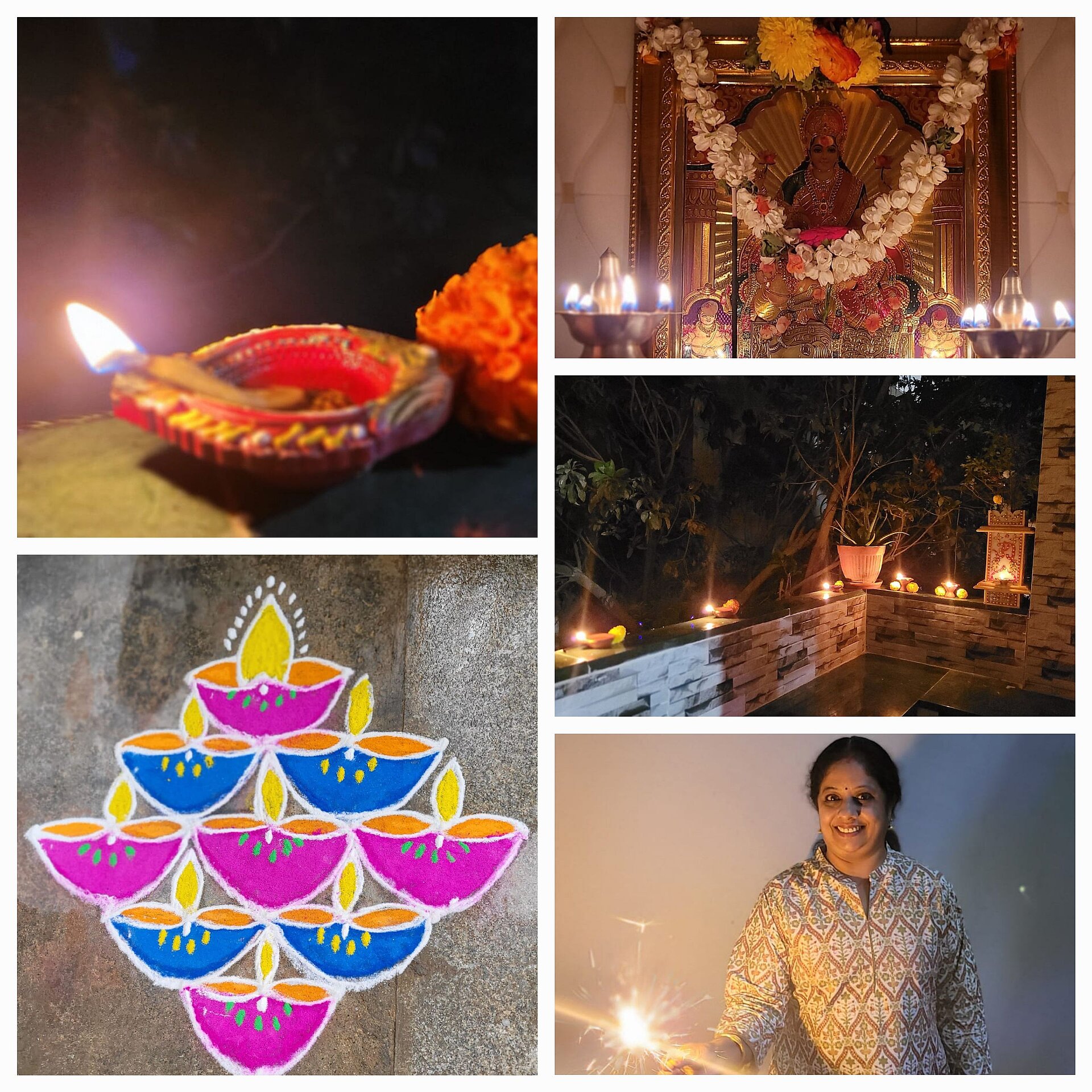
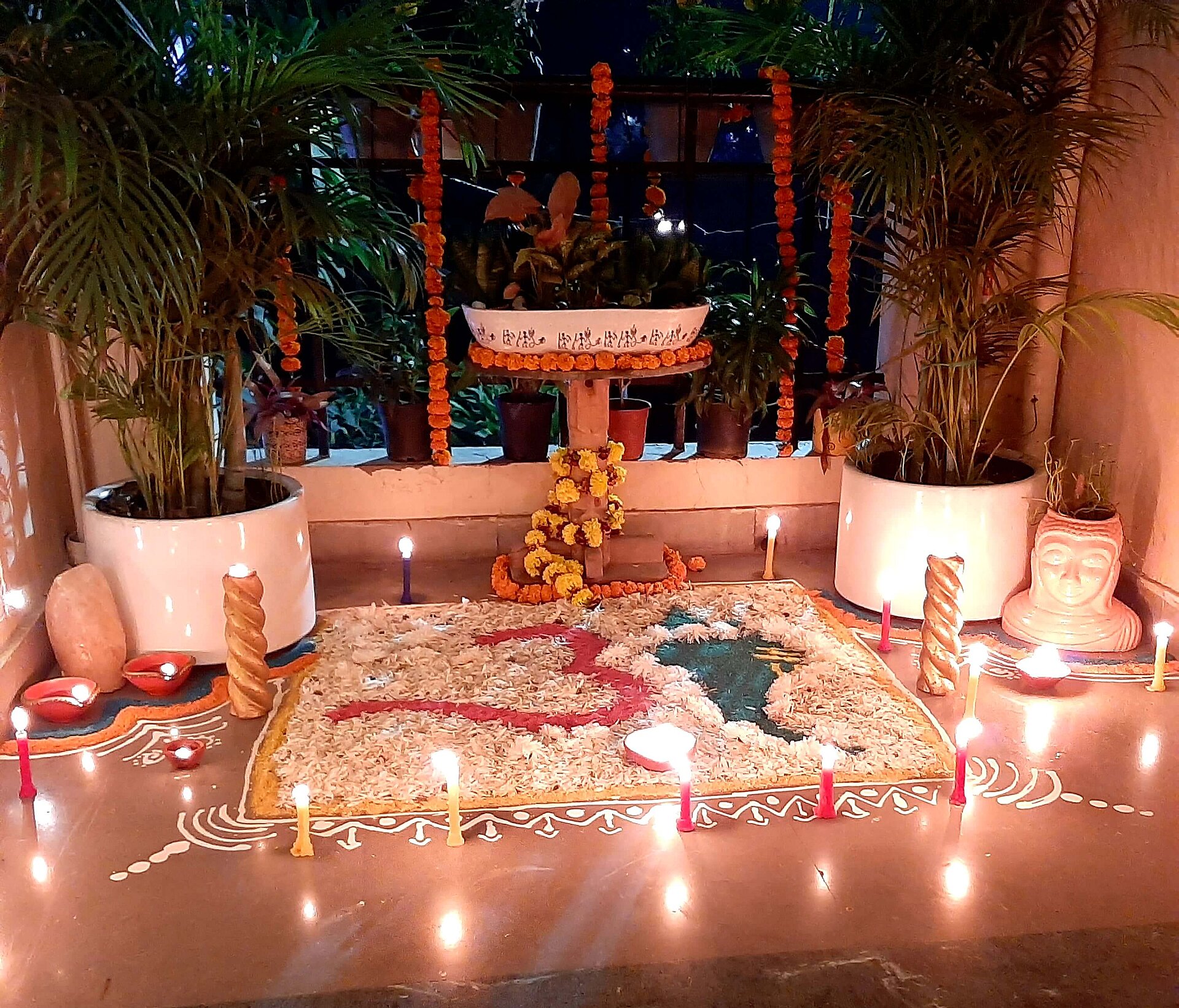
Colorful decoration with rangoli and candles in the house of Nidhi Khanna.
Diwali
Diwali, the five-day festival of lights, follows the Hindu calendar and is celebrated in late autumn at the coming of the new moon, this year on October 24th. Diwali not only brightens up the outer world, in the form of countless lamps and fireworks, it also illuminates the inner world. It reminds mankind of its divine origin. It celebrates the triumph of light over darkness and good over evil. Diwali stands for new beginnings. In northern India, Diwali is also New Year’s Day. The festival is celebrated with various customs and associations.
